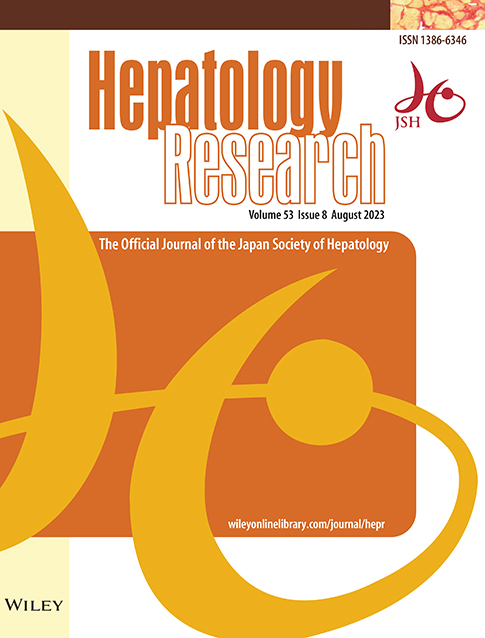Multicenter retrospective study of stereotactic body radiotherapy for patients with previously untreated initial small hepatocellular carcinoma
Abstract
Aim
We aimed to verify the therapeutic efficacy and safety of stereotactic body radiotherapy (SBRT) for previously untreated initial small hepatocellular carcinoma (HCC) in a multicenter, retrospective study.
Methods
Patients who underwent SBRT for HCC at the Japanese Society of Clinical Oncology (JCOG) member hospitals in Japan between July 2013 and December 2017 and met the following eligibility criteria were included: (1) initial HCC; (2) ≤3 nodules, ≤5 cm in diameter; (3) Child–Pugh score of A or B; and (4) unsuitability for or refusal of standard treatment. We analyzed the overall survival, recurrence-free survival, and cumulative incidence of local recurrence rate, and adverse events directly related to SBRT.
Results
Seventy-three patients with 79 lesions from 14 hospitals were analyzed. The median age was 77 years (range: 50–89 years), and the median tumor size was 23 mm (range: 6–50 mm). The median radiation dose was 40 Gy (range: 35–60 Gy) in five fractions (range: 4–8). The median follow-up period was 45 months (range: 0–103 months). The 3-year overall survival, recurrence-free survival, and cumulative incidence of local recurrence rates were 69.9% (95% CI: 58.7%–81%), 57.9% (95% CI: 45.2%–70.5%), and 20.0% (95% CI: 11.2%–30.5%), respectively. Four cases (5.5%) of adverse events of grade 3 or higher were reported: three cases of grade 3 and one case of grade 4 (duodenal ulcer). No grade 5 toxicities were observed.
Conclusion
SBRT is a promising treatment modality, particularly for small HCCs, as they are not suitable for standard treatment.
CONFLICT OF INTEREST STATEMENT
Hiroshi Igaki received research funds from CICS Inc., HekaBio K.K., Elekta KK., and AstraZeneca K.K. All other authors have no conflict of interest.
Open Research
DATA AVAILABILITY STATEMENT
The data that support the findings of this study are available on request from the corresponding author. The data are not publicly available due to ethical restrictions.




